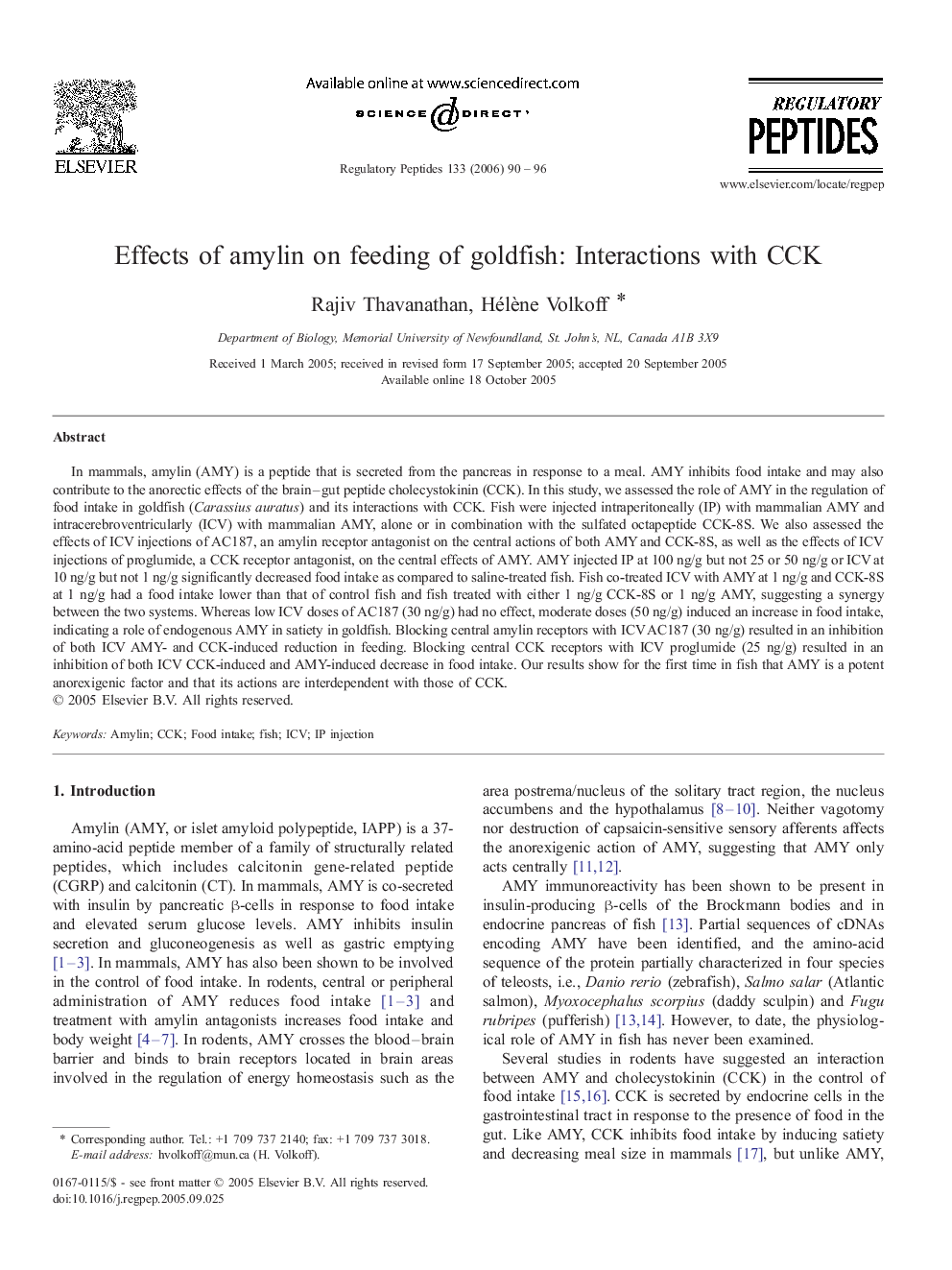| Article ID | Journal | Published Year | Pages | File Type |
|---|---|---|---|---|
| 2023421 | Regulatory Peptides | 2006 | 7 Pages |
In mammals, amylin (AMY) is a peptide that is secreted from the pancreas in response to a meal. AMY inhibits food intake and may also contribute to the anorectic effects of the brain–gut peptide cholecystokinin (CCK). In this study, we assessed the role of AMY in the regulation of food intake in goldfish (Carassius auratus) and its interactions with CCK. Fish were injected intraperitoneally (IP) with mammalian AMY and intracerebroventricularly (ICV) with mammalian AMY, alone or in combination with the sulfated octapeptide CCK-8S. We also assessed the effects of ICV injections of AC187, an amylin receptor antagonist on the central actions of both AMY and CCK-8S, as well as the effects of ICV injections of proglumide, a CCK receptor antagonist, on the central effects of AMY. AMY injected IP at 100 ng/g but not 25 or 50 ng/g or ICV at 10 ng/g but not 1 ng/g significantly decreased food intake as compared to saline-treated fish. Fish co-treated ICV with AMY at 1 ng/g and CCK-8S at 1 ng/g had a food intake lower than that of control fish and fish treated with either 1 ng/g CCK-8S or 1 ng/g AMY, suggesting a synergy between the two systems. Whereas low ICV doses of AC187 (30 ng/g) had no effect, moderate doses (50 ng/g) induced an increase in food intake, indicating a role of endogenous AMY in satiety in goldfish. Blocking central amylin receptors with ICV AC187 (30 ng/g) resulted in an inhibition of both ICV AMY- and CCK-induced reduction in feeding. Blocking central CCK receptors with ICV proglumide (25 ng/g) resulted in an inhibition of both ICV CCK-induced and AMY-induced decrease in food intake. Our results show for the first time in fish that AMY is a potent anorexigenic factor and that its actions are interdependent with those of CCK.
